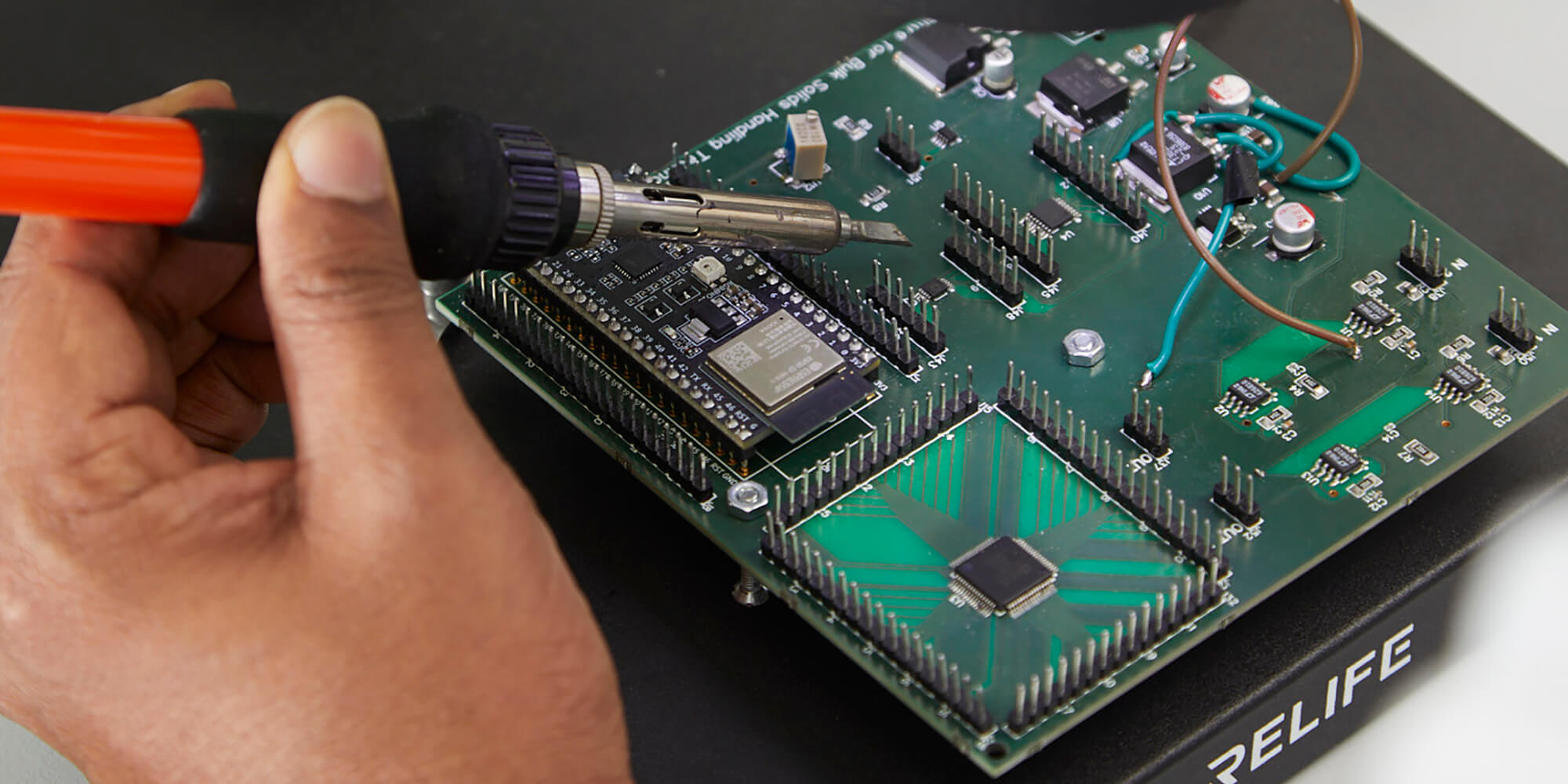The objective of introducing Industry 4.0 control and a digital twin is to reduce power consumption and negative effects on particle quality.
Two particular problems with pneumatic conveying systems are that (i) the material being conveyed often varies in its flow behaviour, and (ii) in many processes, the process demand varies, so system throughput also is often less than the maximum.
Each of these changes would require the resetting of the air flow in the conveyor if it is to be kept at its most efficient, but in reality this air flow is invariably set by the commissioning engineer on installation, at a value that will cover the highest requirement, and left at that. This can frequently lead to the air flow being double that which is required at many times. The excess air flow, amplified by Boyle’s law at reduced conveying pressure under part load, leads to higher air volume and velocity, increasing breakage of particles which is a very serious quality issue with granular products like pet food, coffee granules, detergent powder, wood fuel pellets, granular sugar etc leading to reject dust (up to 10% in some cases) and bad customer impression.
The research aimed to deliver a control system that continuously monitors the behaviour of the material in the pipeline, and readjusts the air flow to account for these material and process changes, giving substantial savings in power (varying up to about 50%) and much reduced particle breakage leading to lower waste and customer complaints.
Qlar (formerly the Schenck Process Group) part-funded this project.
